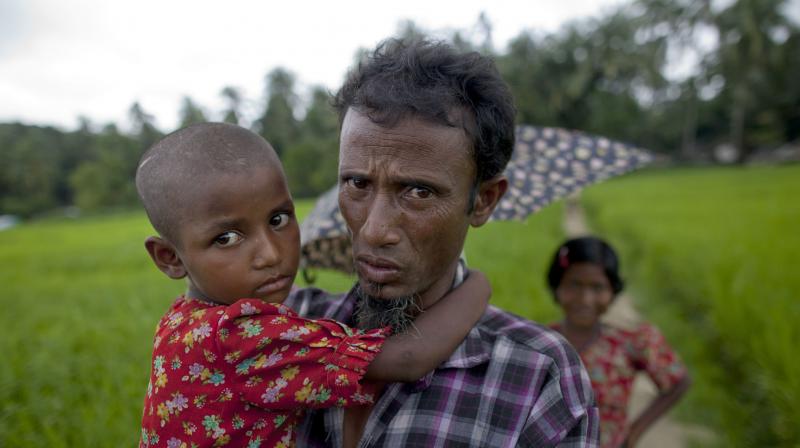India strongly refutes UN criticism on Rohingyas, human rights
Ambassador said Govt's motto Sabka Saath, Sabka Vikas reflects India's commitment to attain inclusive development.

New Delhi: India on Tuesday reacted strongly to the criticism at the United Nations and said it was 'perplexed' by the top UN human rights official’s criticism of New Delhi’s approach to Rohingya refugees and the situation in Jammu and Kashmir.
Responding to the criticism by the top United Nation human right official Zeid Ra'ad al Hussein, at the opening session of the 36th Human Rights Council in Geneva on Monday, Indian Ambassador Rajiv K Chander said there appears to be inadequate appreciation of the freedoms and rights that are guaranteed and practised daily in a vibrant democracy that has been built under challenging conditions.
Zeid Ra’ad al-Hussein on Monday said, "I deplore current measures in India to deport Rohingyas at a time of such violence against them in their country."
Read: Deplore India’s current measures to deport Rohingya refugees: UNHRC
Zeid also denounced Myanmar’s “brutal security operation” against Muslim Rohingyas in Rakhine state, saying it was disproportionate to insurgent attacks carried out in August.
Rajiv K Chander said, "Like many other nations, India is concerned about illegal migrants, in particular, with the possibility that they could pose security challenges. Enforcing the laws should not be mistaken for lack of compassion."
Chander added, "Tendentious judgements made on the basis of selective and even inaccurate reports do not further the understanding of human rights in any society."
Chander said it was also surprising that individual incidents were being extrapolated to suggest a broader societal situation, when a more informed view would have noted that Prime Minister Narendra Modi had publicly condemned violence in the name of cow protection.
“India does not condone any actions in violation of law and imputations to the contrary are not justified. We have also noted that the issue of the human rights situation in the Indian state of Jammu and Kashmir has been raised. It is a matter of regret that the central role of terrorism is once again being overlooked.
Assessments of human rights should not be a matter of political convenience,” he added.
He said India is proud of its independent judiciary, freedom of press, vibrant civil society and respect for rule of law and human rights.
Chander said the country believes that achieving human rights goals called for objective consideration, balanced judgements and verification of facts.
"Our Government’s motto of Sabka Saath, Sabka Vikas that is All Together and Development for All, is a true reflection of our commitment to achieve inclusive development in the spirit of leaving none of our citizens behind," he said.

